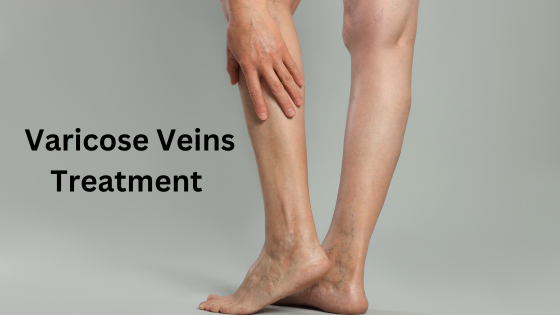Introduction
Varicose veins can be not only unsightly but also uncomfortable, and they often require medical intervention for effective treatment. If you’ve decided to pursue varicose vein treatment, preparing yourself beforehand can help ensure a smoother process and more successful outcomes. In this blog, we’ll guide you through essential steps to prepare yourself for varicose vein treatment.
- Consultation with a Specialist
Before anything else, schedule a consultation with a vascular specialist or a vein specialist. They will assess the severity of your varicose veins and recommend the most appropriate treatment options. This initial step is crucial in creating a personalized plan for your condition.
- Understand the Treatment Options
There are several treatment options available for varicose veins, ranging from minimally invasive procedures to surgery. Common treatments include:
a. Endovenous Laser Treatment (EVLT)
b. Radiofrequency Ablation (RFA)
c. Sclerotherapy d. Surgical vein stripping
It’s important to understand the pros and cons of each treatment, as well as their potential risks and benefits. Your specialist will discuss these options with you, helping you make an informed decision.
- Pre-Treatment Evaluation
Your specialist may recommend certain pre-treatment evaluations, such as a Doppler ultrasound, to assess the extent of your varicose veins and identify any underlying issues. This information will inform the treatment plan and ensure that the chosen method is tailored to your specific needs.
- Lifestyle Changes
In some cases, making certain lifestyle changes can help improve the success of varicose vein treatment and reduce the risk of recurrence. These changes may include:
a. Maintaining a healthy weight to reduce pressure on the veins. b. Staying physically active to improve blood circulation. c. Elevating your legs when possible to relieve pressure on the veins. d. Wearing compression stockings as recommended by your specialist.
- Medication Management
If you are taking any medications, inform your healthcare provider about them, including any blood thinners or aspirin. Some medications may need to be adjusted or temporarily discontinued before the procedure to reduce the risk of bleeding or other complications.
- Arrange for Transportation
Most varicose vein treatments are outpatient procedures, but you may need someone to drive you to and from the clinic or hospital, especially if sedation or anesthesia is involved.
- Post-Treatment Care
Understanding what to expect after the procedure is essential. Your specialist will provide post-treatment instructions, which may include wearing compression stockings, refraining from certain activities, and scheduling follow-up appointments.
- Emotional Preparation
Dealing with varicose veins can take a toll on your self-esteem. Preparing yourself emotionally is as important as the physical preparation. Remember that seeking treatment is a positive step toward improved vascular health and a better quality of life.
Conclusion
Preparing for varicose veins treatment is a proactive way to ensure a successful and comfortable experience. By consulting with a specialist, understanding your treatment options, and following their recommendations, you can look forward to effective treatment and relief from the discomfort and cosmetic concerns associated with varicose veins. Remember, your healthcare provider is your partner in this journey, so feel free to ask any questions or seek clarification on any aspect of the treatment process.
